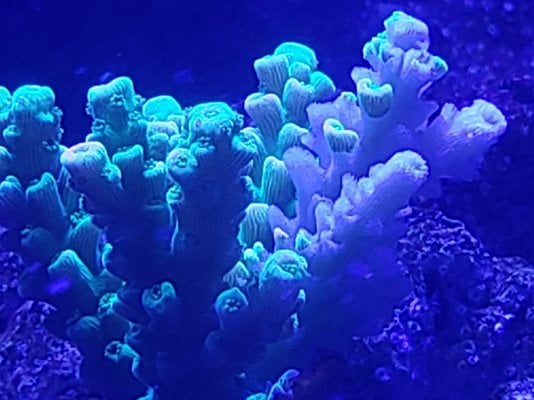Hi...had this acro as an experiment. Wanted to see if I could manage keeping it. Had for about a month. Tank params:
Nitrate : 8.6
Phos : 0.18
Alk : 7.8
Calc : 375
Lighting : 2x Nicrew 150s + 1x Nicrew 100
I run mostly blues, with an hour of white everyday.
Ca is a little low...working on boosting that.
Here is the coral. Everything else in the tank looks good. Thoughts?

Nitrate : 8.6
Phos : 0.18
Alk : 7.8
Calc : 375
Lighting : 2x Nicrew 150s + 1x Nicrew 100
I run mostly blues, with an hour of white everyday.
Ca is a little low...working on boosting that.
Here is the coral. Everything else in the tank looks good. Thoughts?






















